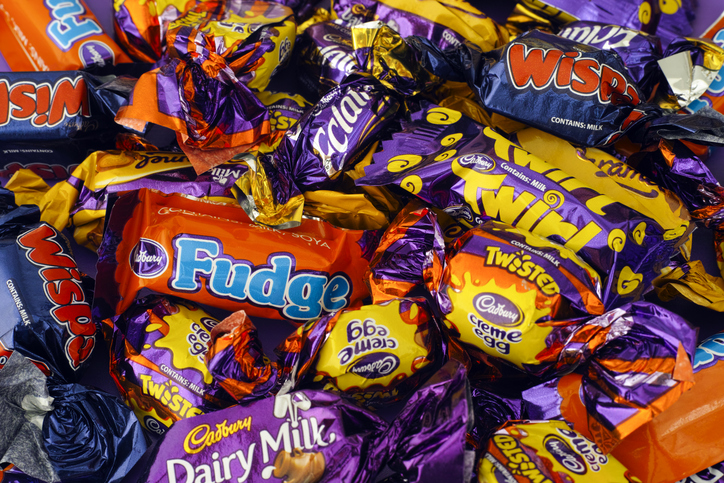Cadbury Loses Royal Warrant After 170 Years: A New Era Under King Charles
For the first time in its illustrious 170-year history, Cadbury has been removed from the prestigious royal warrant list. This marks a significant turning point for the beloved chocolate manufacturer, known for its iconic "glass and a half of milk in every bar" slogan. Among 100 previous suppliers excluded under King Charles III's reign, Cadbury’s omission is emblematic of broader changes as the new monarch redefines royal endorsements.
This decision not only closes a chapter on Cadbury’s long-standing relationship with the royal family but also raises questions about the impact on its brand, business strategy, and standing as one of Britain’s most iconic companies.
The Historic Partnership Between Cadbury and the Royal Family
Cadbury’s relationship with the royal family dates back to 1854 when Queen Victoria first granted the company a royal warrant. The endorsement recognized Cadbury’s high-quality chocolate, cementing its status as a household name in Britain. Over the years, Cadbury’s products reportedly became a favorite of Queen Elizabeth II, symbolizing the brand’s deep integration into British culture and tradition.
Royal warrants are more than just ceremonial; they serve as a hallmark of quality and trust, often boosting a company’s reputation and appeal both domestically and internationally. For Cadbury, the warrant represented a seal of approval that resonated with its loyal customer base.
However, under King Charles III, who ascended to the throne in 2022, the royal warrant list has undergone significant revisions. Cadbury’s removal reflects the monarch’s vision of aligning the royal household with contemporary values and priorities.
Cadbury: A British Icon with a Global Reach
Founded in 1824 by John Cadbury in Birmingham, Cadbury started as a small family-run business selling tea, coffee, and drinking chocolate. Over the decades, it grew into one of the world’s largest confectionery companies, becoming synonymous with British culture.
The brand’s major breakthrough came in 1905 with the launch of the Dairy Milk bar, a product that remains its flagship offering. From its origins in Bournville—a model village established by the Cadbury family for their workers—the company became known not only for its chocolates but also for its commitment to social welfare and ethical business practices.
Despite its storied history, Cadbury’s ownership changed dramatically in 2010 when it was controversially acquired by Kraft Foods, an American conglomerate. This acquisition led to significant restructuring and eventually resulted in Cadbury becoming part of Mondelēz International, Kraft’s global snack division.
Today, Cadbury operates in over 50 countries, with products ranging from Dairy Milk to Creme Eggs and Roses. It is the largest chocolate manufacturer in Britain, commanding a significant share of the confectionery market. However, this dominance has not shielded the company from challenges, including shifting consumer preferences, rising ingredient costs, and growing scrutiny over its global operations.
The Impact of Losing the Royal Warrant
For a brand with such deep ties to British tradition, losing the royal warrant represents more than just a symbolic blow—it could have tangible business consequences. The royal endorsement has long been a mark of prestige, helping brands differentiate themselves in competitive markets.
In Cadbury’s case, the warrant likely played a role in reinforcing its image as a premium, high-quality brand. With its removal, the company faces the challenge of maintaining its position as a trusted name in the eyes of consumers.
Furthermore, businesses that lose their royal warrant are required to remove all branding and packaging that references the endorsement within 12 months. This will necessitate changes to Cadbury’s packaging and marketing strategies, potentially adding costs at a time when the company is already grappling with financial pressures.
Mondelēz International: Cadbury’s Parent Company Under Fire
Mondelēz International, the American parent company of Cadbury, is no stranger to controversy. The 2010 acquisition of Cadbury by Kraft Foods sparked widespread backlash in the UK, with critics lamenting the loss of a quintessentially British brand to foreign ownership. Since then, Mondelēz has faced ongoing criticism over its business practices, including factory closures, layoffs, and the outsourcing of production.
More recently, Mondelēz has come under fire for continuing operations in Russia despite the ongoing conflict in Ukraine. Activists from the B4Ukraine campaign have accused the company of indirectly supporting Russia’s war effort by maintaining its presence in the country. This controversy has led to calls for King Charles to distance himself from Cadbury and other companies with similar ties.
Although the removal of Cadbury’s royal warrant is not directly linked to the campaign, the timing has amplified scrutiny of the company’s ethical practices.
Related: FCA Under Fire: MPs Label UK Financial Regulator 'Incompetent' and 'Toxic'
Royal Warrant Changes Under King Charles III
Cadbury is not the only notable brand to lose its royal warrant under King Charles III. The latest list, released by the Royal Warrant Holders Association, includes around 100 brands that no longer hold the prestigious endorsement.
Unilever, the maker of Marmite and Magnum ice creams, is another major name missing from the list. However, some companies have retained their warrants, including Bacardi and Samsung. Meanwhile, new additions include brands associated with Queen Camilla, such as Jo Hansford, her personal hairdresser, and Wartski jewellers, which crafted the wedding rings for the King and Queen.
Royal warrants are reviewed every five years, and their renewal is often influenced by the preferences and values of the reigning monarch. King Charles’s decisions reflect a broader effort to align the royal household with contemporary ethical and sustainability standards.
The Future for Cadbury
As Cadbury navigates this new chapter, it faces several challenges. Financially, Mondelēz UK reported a sharp decline in profits, with earnings falling by one-third to £88.1 million for the fiscal year ending December 2023. This financial strain, coupled with the loss of the royal warrant and ongoing reputational issues, puts additional pressure on the company to adapt and innovate.
Despite these hurdles, Cadbury remains a powerful brand with a loyal customer base. Its products continue to be a staple of British households, and its global reach offers opportunities for growth in emerging markets. However, to maintain its relevance and reputation, the company must address its ethical and operational challenges, particularly in light of growing consumer demand for transparency and sustainability.
A New Era for Cadbury and the Royal Household
The removal of Cadbury’s royal warrant marks the end of an era for one of Britain’s most iconic brands. It reflects a broader shift under King Charles III, who is redefining the royal household’s relationship with businesses in line with contemporary values.
For Cadbury, the loss is both symbolic and strategic, underscoring the need for the company to adapt to changing consumer expectations and navigate a complex global landscape. As the brand moves forward, it must leverage its rich history and global presence to overcome these challenges and reaffirm its place as a leader in the confectionery industry.









